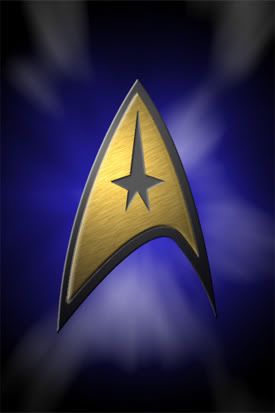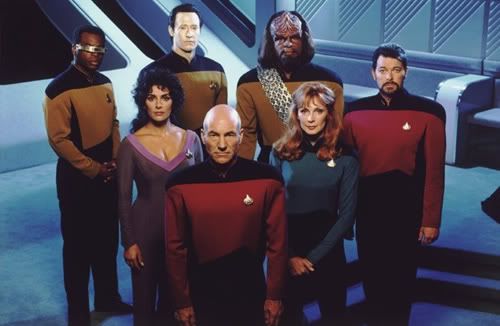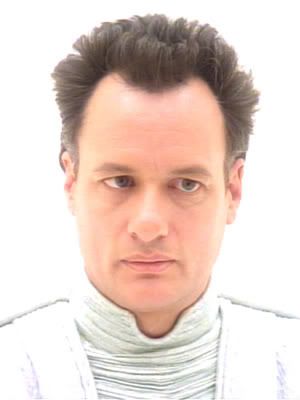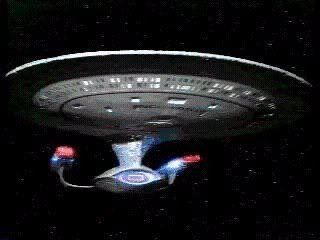
It’s coming up on two years since I last wrote in-depth about a Star Trek series. And it was even longer between our last discussion, on The Animated Series, and the return of Star Trek in the late 80s. I was 8 when Star Trek: The Next Generation premiered, and sitting down with my parents to see the 24th century come to life pretty much blew my fool mind. Looking back, there’s still a lot to love about the show, but it had more than its share of growing pains.

The starship was still named Enterprise, but this vessel and crew were a far cry from the rickety Wagon Train to the Stars we saw back in the 60s. No, this was a more advanced time, when mankind went to space in floating shopping malls. But don’t use that word, because the United Federation of Planets (or Earth at least) has evolved past the necessity for things like money and material goods! When you can replicate or reproduce via holodeck just about anything you’d want, I guess money sort of becomes obsolete. Not that it stops other races from using money, like the Ferengi.
We can’t talk about antagonists without protagonists, though, so let’s start with the man in charge. Captain Jean-Luc Picard is not a two-fisted adventurer like Kirk. He’s a diplomat, strategist and history nut charged with exploring the edges of the galaxy on one of the best ships in Starfleet. Most of the adventuring, lady-bedding and quipping is done by first officer Will Riker, from whom we learned the power of growing the beard. Once he let that chin curtain set in around season 2, the show began to improve.
Good thing, too, because for a while things floundered a bit. It took the show a few years to figure out what to do with Worf, and even longer to finally write Wesley Crusher off of the show. Creative differences required them to replace the chief medical officer in season 2, which caused such an outcry that they all but begged Wesley’s mom to come back. And the ship’s counselor had to find things to do during episodes outside of pouting her lips and moaning about how much pain the crew was in. Seriously, go back and watch a few season 1 episodes. You’ll either laugh or cry.

Season 1 also floundered a bit with the character of Q. Introduced in the pilot, the writers seemed to have difficulty deciding if he would be a distant, authoritarian judge with omnipotent powers, or a trickster spirit in the vein of Coyote, Loki or Mister Mxyzptlk. It would be a few seasons before he settled into something of an odd mix, but developing a relationship with Picard I’ve discussed at length previously.
While the new series did bring over the old foes of the Klingons and the Romulans, the Klingons were now allied with the Federation (as evidenced by Worf being on the bridge) and the Romulans kept to the shadows. We were, instead, introduced to the Ferengi, who thankfully were evolved beyond base, venial savagery quickly into profiteering, scheming chaotic neutral scavenger-merchants; the Cardassians, an authoritarian but charismatic people who clash with the Federation ideals of fair justice and individual freedom; and the Borg, a cybernetic hive-mind race bent on the assimilation of all technology they do not already possess.
While the Ferengi and the Cardassians don’t really come into their own in Next Generation, the groundwork is laid for later development. And on its own, Next Generation is nothing to sneeze at. The crew does have good chemistry and their performances and staying power allowed them to rise to the realm of Kirk and Spock, overcoming the walls of genre fiction to be recognized by the mainstream. It delivers powerful stories within its own universe (“Best of Both Worlds, Part I & II”, “Cause & Effect”), and plays well on themes of individuality (“I, Borg”), willpower (“Chain of Command, Part II”), the precious nature of the moments of our lives (“Tapestry”) and unique ways to explore the human condition (“The Inner Light.”).
The best of the series, I feel, emerged when it shook off the trappings of the old series and attempts at overt preaching. “The Naked Now” was a shameless callback to a weaker Original Series episode, “The Neutral Zone” had a misfired treatise on materialism competing with some more interesting things and episodes like “Justice” and “Code of Honor” were full of unfortunate implications as well as showing some of the seams in the budget of the show. Some of these things faded more quickly than others, and towards the end of the series the spectre of technobabble began to creep into the dialog of these characters we came to know and love over seven seasons.

As I mentioned, Next Generation rose to similar heights to the original Star Trek series in the eyes of the general public. Most folks who know who Kirk and Spock are also know about Picard and Data. The success of the series paved the way for more feature films and several new series. One of which I’m in the process of watching again as I write this. And by “watching”, I mean “watching my mailbox and hoping the next disc doesn’t get lost the way those Magic cards did. CURSE YOU USPS!”
I mean. Er. “Make it so.” Or something.



Leave a Reply